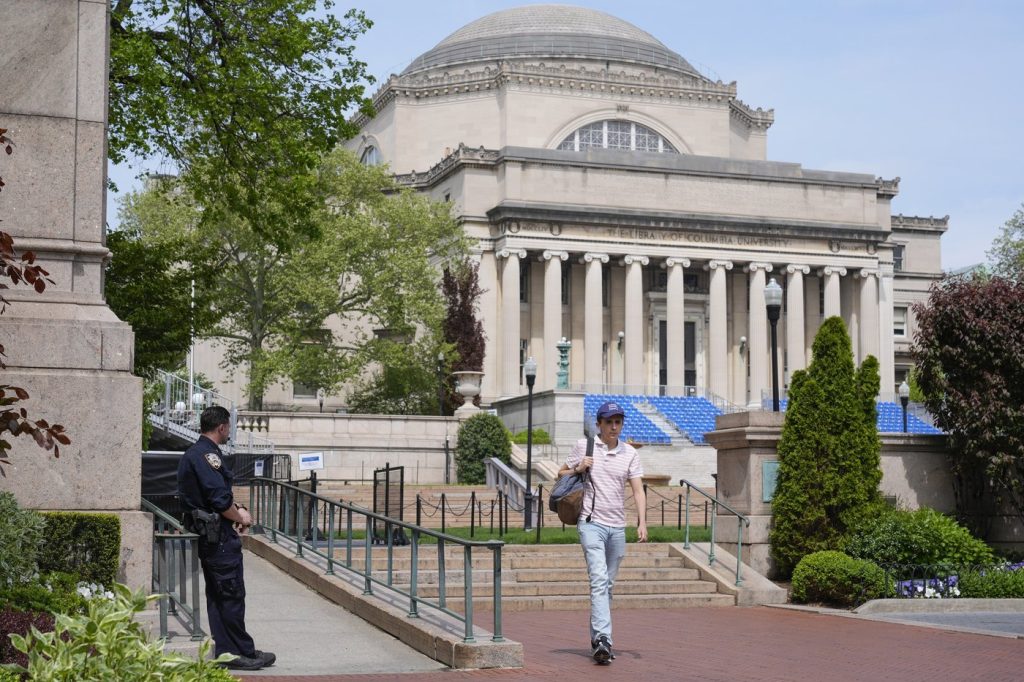As the academic year comes to a close, campus activism has intensified, particularly with pro-Palestinian demonstrations leading to arrests at various colleges across the United States. This spring’s protests have been notably smaller and more dispersed compared to last spring, which saw over 2,100 arrests in campus protests nationwide. Despite this, the current demonstrations carry higher stakes due to scrutiny from the Trump administration, which is investigating numerous colleges regarding their handling of protests and allegations of antisemitism. The administration has also frozen federal grant money as leverage to enforce stricter rules on campus activism.
Collegiate responses have shifted towards a more aggressive stance on discipline and enforcement, adopting new policies to prevent situations similar to last year's tent encampments, which persisted for weeks on many campuses. Protesters this year are still championing similar goals as last year's movements, primarily seeking an end to university ties with Israel or companies supporting Israel. This includes protests at notable institutions such as Columbia University and the University of Washington.
During a recent protest at Columbia University, demonstrators took over a library and issued demands that included divestment from what they termed "occupation, apartheid, and genocide," as well as amnesty for students and workers facing disciplinary action. This protest resulted in approximately 80 arrests, with calls for police and federal immigration officials to withdraw from campus. Similarly, a protest days earlier at the University of Washington focused on the institution severing ties with Boeing, a supplier to the Israeli Defense Forces, resulting in 30 arrests.
Other protests have arisen at institutions like Swarthmore College, Rutgers University, the University of California, Los Angeles, and Brooklyn College. Timing of these protests may be influenced by developments in the ongoing Israel-Hamas conflict and the approaching end of the academic year, prompting activists to seize what they perceive as their last opportunity to voice their opposition.
Despite the energy surrounding these protests, some academics, such as Robert Cohen from New York University, suggest that the overall movement has become subdued due to colleges imposing stricter regulations. He points out that while there is a core group of activists, the larger movement has faced suppression, resulting in smaller and more scattered protests this spring.
The consequences for colleges in navigating these protests are significant, as they risk losing federal grants for research if their response is deemed inadequate. The handling of last year's protests has been central to tensions between the Trump administration and institutions like Columbia University and Harvard. Some universities have faced funding freezes due to accusations of failing to address campus antisemitism, as federal officials have pressed for tougher action against activists and clearer regulations on protests.
For instance, following the University of Washington protest, a federal antisemitism task force announced a review, commending rapid police action and emphasizing the expectation that campus leaders would implement necessary policy changes to curb future protests. The atmosphere has grown even more fraught for international students, with the government moving to deport those with connections to pro-Palestinian activism.
Columbia University’s response to the recent protests has included suspending 65 students and barring 33 others from campus after police cleared the occupied library. This action received praise from the Trump administration’s task force, which expressed satisfaction with the university's decisive condemnation of the protests. In response to federal pressures, Columbia had already enacted other changes, including banning masks that obscure identities and hiring new public safety officers with arrest powers on campus.
Similarly, the University of Washington responded swiftly to its protest, resulting in the suspension of 21 students. These actions highlight the increasing crackdown on campus protests as institutions navigate the complexities of activism, political pressures, and federal oversight in a time of heightened tensions.











